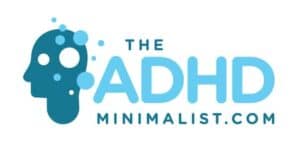
I was asked the other day what I thought of Neurofeedback for the treatment of ADHD, and I had to do some research to give an honest answer. My kids haven’t tried this personally because treatment centers are too far from our home, but after doing the research I am positive positive towards the treatment. Of my two kids with ADHD, I think my daughter (ADHD inattentive) would benefit most and I am looking into options.
If you are wondering what neurofeedback is then dive into this article!
Imagine if you could unlock the true potential of your brain – not just maximizing its performance, but also enhancing your memory, creativity, and problem-solving skills. It may sound like something out of a science fiction movie, but in reality, it’s possible with the revolutionary field of neurofeedback training. In this article, we will delve into the fascinating world of neurofeedback training, exploring how it works, the cognitive limitations it can help overcome, and the incredible benefits it offers. Get ready to take a deep dive into the cutting-edge techniques that can help you outsmart your brain and optimize your cognitive abilities like never before.,
Understanding Neurofeedback Training
To truly grasp the potential of neurofeedback training, it is essential to understand the intricacies of this groundbreaking technique. Neurofeedback training involves using advanced technology to monitor and analyze the brain’s electrical activity in real time, providing valuable insights into its functioning. By gaining this deeper understanding, individuals can then learn to regulate their brain waves and optimize their cognitive performance.
At its core, neurofeedback training is based on the principle of neuroplasticity – the brain’s ability to change and reorganize itself. Through a series of sessions, individuals are connected to sensors that measure their brain waves, allowing them to receive immediate feedback on their brain activity. This feedback is presented in the form of visual or auditory cues, enabling individuals to recognize when their brain is operating in an optimal state.
The goal of neurofeedback training is to help individuals self-regulate their brain activity patterns, guiding them toward more desirable patterns associated with focus, relaxation, and enhanced cognitive abilities. By recognizing and reinforcing these positive brain wave patterns, individuals can gradually train their brains to function more effectively, leading to improved memory, attention, emotional regulation, and overall cognitive performance.
Neurofeedback training can be compared to physical exercise for the brain. Just as we engage in physical training to strengthen our muscles, neurofeedback training allows us to exercise and enhance our brain’s neural networks. By consistently engaging in neurofeedback sessions, individuals can strengthen the connections between brain cells, leading to improved brain function even outside of the training sessions.
One of the key aspects of neurofeedback training is its individualized approach. Each person’s brain is unique, and therefore, the training is tailored to address their specific cognitive challenges and goals. By identifying the areas of the brain that may be underperforming or overactive, neurofeedback training can provide targeted interventions to address these imbalances and promote optimal brain functioning.
In the next section, we will explore how neurofeedback training can help individuals overcome cognitive limitations and unleash their brain’s true potential. Prepare to discover the transformative power of neurofeedback in enhancing memory, creativity, problem-solving skills, and more.
Overcoming Cognitive Limitations
Neurofeedback training offers a promising solution for individuals looking to overcome cognitive limitations and unlock their brain’s full potential. By providing personalized interventions that target specific areas of the brain, this training method helps address underperforming or overactive areas to promote optimal brain functioning.
Through the individualized approach of neurofeedback training, individuals can identify their unique cognitive challenges and goals. Whether it’s improving memory, enhancing creativity, or sharpening problem-solving skills, the training can be tailored to suit each person’s specific needs. By understanding the areas of the brain that may be hindering performance, neurofeedback training can provide targeted interventions to address these imbalances and unlock new levels of cognitive abilities.
For those struggling with memory issues, neurofeedback training offers a transformative solution. By targeting the areas of the brain responsible for memory function, this training method can enhance memory recall and retention. Through feedback and reinforcement, individuals can effectively strengthen neural connections and improve their overall memory capacity.
Moreover, neurofeedback training has shown great promise in boosting cognitive function. By identifying and addressing cognitive weaknesses, individuals can tap into their brain’s untapped potential. Through targeted interventions, neurofeedback training can help improve attention span, focus, and cognitive flexibility, leading to improved problem-solving skills and overall cognitive performance.
The beauty of neurofeedback training lies in its ability to adapt to each person’s unique brain patterns and cognitive needs. By precisely targeting the areas that require intervention, this training method empowers individuals to overcome their cognitive limitations and unleash their brain’s true potential. Ready to dive deeper into the transformative power of neurofeedback? Keep reading to discover how this technique can specifically boost memory and cognitive function.
Boosting Memory and Cognitive Function
Moreover, neurofeedback training has shown great promise in boosting cognitive function. By identifying and addressing cognitive weaknesses, individuals can tap into their brain’s untapped potential. Through targeted interventions, neurofeedback training can help improve attention span, focus, and cognitive flexibility, leading to improved problem-solving skills and overall cognitive performance.
The beauty of neurofeedback training lies in its ability to adapt to each person’s unique brain patterns and cognitive needs. By precisely targeting the areas that require intervention, this training method empowers individuals to overcome their cognitive limitations and unleash their brain’s true potential.
One specific area in which neurofeedback training has been found to be effective is in boosting memory and cognitive function. The brain’s ability to retain and recall information is crucial for learning and daily functioning. Neurofeedback training can strengthen the connections in the brain associated with memory, enabling individuals to better encode and retrieve information. This can have a significant impact on academic performance, professional success, and overall cognitive abilities.
In addition to memory, neurofeedback training can also enhance other cognitive functions such as attention and executive function. Attention is the foundation of all cognitive processes, and by improving attention span and focus, individuals can better absorb and process information. This can lead to improved problem-solving skills, as individuals are able to more effectively analyze and synthesize information to find innovative solutions.
Furthermore, neurofeedback training has been found to enhance cognitive flexibility. Cognitive flexibility refers to the brain’s ability to switch between different mental tasks or perspectives. By improving cognitive flexibility, individuals can adapt more readily to changing situations, think outside the box, and approach challenges from different angles. This can be particularly beneficial in creative problem-solving scenarios, where unique solutions are often needed.
By honing memory and cognitive function through neurofeedback training, individuals can unlock their brain’s full potential and excel in various aspects of life. The next section will delve deeper into how this training method can further enhance creativity and problem-solving abilities, building upon the foundation of improved memory and cognitive function.
Enhancing Creativity and Problem-Solving
By improving cognitive flexibility, individuals can adapt more readily to changing situations, think outside the box, and approach challenges from different angles. This can be particularly beneficial in creative problem-solving scenarios, where unique solutions are often needed.
Creativity is an essential skill in today’s fast-paced and ever-changing world. Whether it’s coming up with innovative ideas for a marketing campaign or finding a new approach to solving a complex problem, being able to think creatively is a valuable asset. Neurofeedback training can play a significant role in enhancing creativity and problem-solving abilities.
Neurofeedback training has been shown to stimulate the brain’s neural pathways and foster new connections. This increased connectivity can lead to improved creative thinking by allowing different regions of the brain to communicate more effectively. As a result, individuals may experience enhanced ideation, a greater ability to connect seemingly unrelated concepts, and a broader perspective when approaching challenges.
Moreover, neurofeedback training can enhance cognitive performance, including memory and attention span. These cognitive enhancements can further fuel creativity and problem-solving by providing individuals with a solid foundation on which to build their creative ideas. With improved memory, individuals can easily access relevant information and draw upon past experiences to generate new ideas or solutions. Additionally, an enhanced attention span allows for sustained focus and concentration, facilitating deeper analysis and innovative thinking.
The combination of improved cognitive function and enhanced creative thinking can lead to breakthroughs in problem-solving. With neurofeedback training, individuals can approach problems from different angles, consider alternative perspectives, and explore a range of potential solutions. This flexibility in thinking allows for the generation of unique and original ideas that may not have been possible without neurofeedback training.
Overall, neurofeedback training serves as a catalyst for boosting creativity and problem-solving abilities. By improving cognitive flexibility and cognitive function, individuals can unlock their brain’s full potential and excel in various aspects of life. In the next section, we will delve deeper into how this training method can further maximize brain performance and potential, building upon the foundation of enhanced creativity and problem-solving abilities.
Maximizing Brain Performance and Potential
The benefits of neurofeedback training extend far beyond improved creativity and problem-solving. By maximizing brain performance and potential, individuals can push their abilities to new heights and excel in various aspects of life.
One of the key ways in which neurofeedback training enhances brain performance is by increasing focus and attention span. Through this training method, individuals learn to regulate their brainwave activity, leading to a heightened state of concentration. This improved ability to stay focused allows for increased productivity and efficiency in completing tasks, whether it be in academic, professional, or personal settings.
Furthermore, neurofeedback training can also lead to enhanced memory and learning capabilities. As individuals learn to regulate their brainwaves, they develop greater control over the brain regions responsible for memory formation and information retention. This not only leads to improved academic performance but also supports lifelong learning and the acquisition of new skills.
Another way in which neurofeedback training maximizes brain performance is by reducing stress and anxiety. By training the brain to enter a state of relaxation and calm, individuals can effectively manage and overcome stressful situations. This stress reduction improves overall mental well-being and allows for clearer thinking and improved decision-making.
Additionally, neurofeedback training promotes better sleep patterns, which are essential for optimal brain function. By regulating brainwave activity during sleep, individuals can experience deeper and more restful sleep, leading to increased cognitive function and improved overall mood and energy levels.
It is worth noting that maximizing brain performance and potential through neurofeedback training is a continuous process. As individuals practice and refine their brainwave regulation skills, they can continue to unlock new levels of cognitive abilities and tap into their brain’s untapped potential.
In the next section, we will explore specific techniques and strategies that can be employed in neurofeedback training to further enhance brain performance and potential. By building upon the foundation of improved creativity, problem-solving, focus, memory, and reduced stress, individuals can truly harness the full power of their brains.
In conclusion, neurofeedback training offers a transformative path towards unlocking the vast potential of our brains. By understanding this cutting-edge field, we can overcome cognitive limitations, boost memory, enhance creativity, and maximize our brain performance.
Through neurofeedback, we have the power to reshape our minds and push the boundaries of what we thought was possible. As we take that first step into this remarkable world of neurofeedback training, we open ourselves to a profound journey of self-discovery and cognitive optimization.
As Albert Einstein once said, “The true sign of intelligence is not knowledge but imagination.” Let neurofeedback training ignite your imagination and propel you towards the extraordinary.
